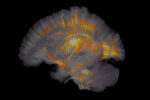 Can We Identify Future Leaders Before They Lead? How Wharton Neuroscience, Korn Ferry, and Lazul.ai are uncovering the science behind tomorrow’s leaders Imagine a company that's not hiring just for today but for the future. Discover how Wharton Neuroscience, the Korn Ferry Institute, and Lazul.ai are uncovering the science behind…Read More
Can We Identify Future Leaders Before They Lead? How Wharton Neuroscience, Korn Ferry, and Lazul.ai are uncovering the science behind tomorrow’s leaders Imagine a company that's not hiring just for today but for the future. Discover how Wharton Neuroscience, the Korn Ferry Institute, and Lazul.ai are uncovering the science behind…Read More Can We Identify Future Leaders Before They Lead?
 Can We Identify Future Leaders Before They Lead? How Wharton Neuroscience, Korn Ferry, and Lazul.ai are uncovering the science behind tomorrow’s leaders Imagine a company that's not hiring just for today but for the future. Discover how Wharton Neuroscience, the Korn Ferry Institute, and Lazul.ai are uncovering the science behind…Read More
Can We Identify Future Leaders Before They Lead? How Wharton Neuroscience, Korn Ferry, and Lazul.ai are uncovering the science behind tomorrow’s leaders Imagine a company that's not hiring just for today but for the future. Discover how Wharton Neuroscience, the Korn Ferry Institute, and Lazul.ai are uncovering the science behind…Read More 





